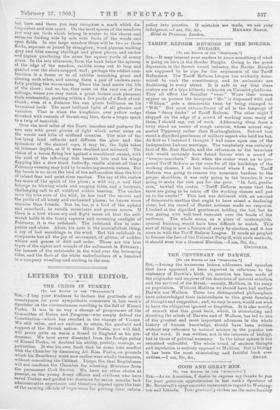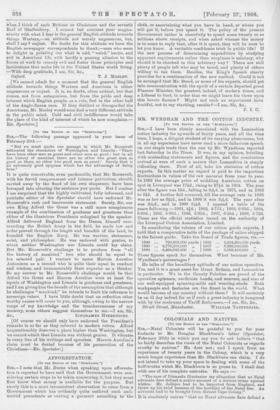GOOD AND GREAT MEN.
[TO Tile EDITOR OF 'fCC SP EC l'ATi R.1 SIB,—As an American, I desire to express my thanks to you for your generous appraisement in last week's Spectator of Mr. Roosevelt's epigrammatic statement in regard to Washing- ton and Lincoln. Your generorii4 strikes me the more forcibly ;then I think of such Britons as Gladstone and the seventh Earl of Shaftesbury. I cannot but contrast your magna- nimity with what I fear is the general English attitude towards things Weetern,—an attitude not merely ungenerous, but, shall I say P unjust. No doubt for this attitude we have the English newspaper correspondents to thank,—men who seem to delight in poiating out what is odd, "weird," hectic, and evil in American life, with hardly a passing allusion to the forces at work to remedy evil and foster those principles and institutions that make life in the United States worth living. —With deep gratitude, I am, Sir, Sui., [We cannot admit for a moment that the general English attitude towards things Western and American is either ungenerous or Unjust. It is, no doubt, often critical, but that comes, not from antagonism, but from the pride and deep interest which English people, as a rule, feel in the other half of the Anglo-Saxon race. If they disliked or disregarded the Americans, Mr. Mosley would soon find a very different attitude in the public mind. Cold and civil indifference would take the place of the kind of interest of which he now complains.— EP. Spectator.]







































 Previous page
Previous page